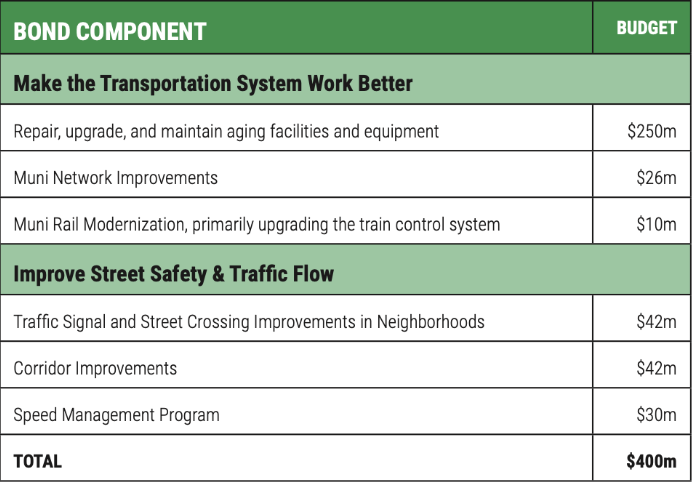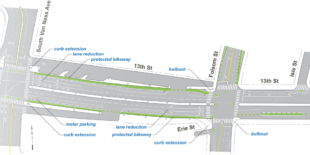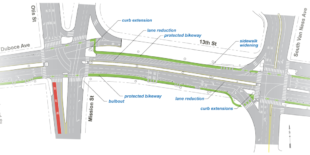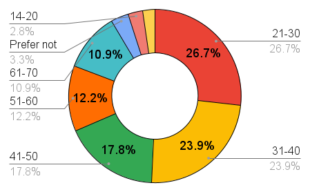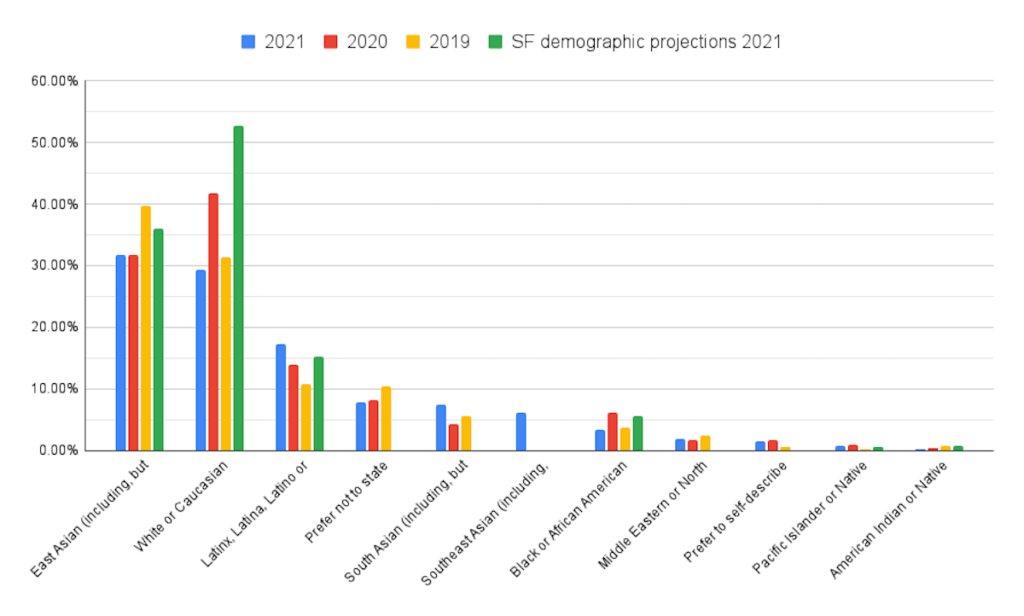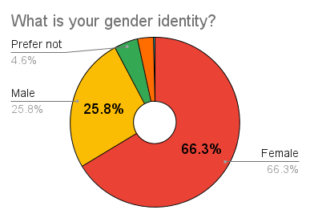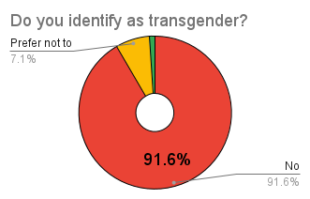UPDATE: This position has now been filled. Thank you for your interest!
The San Francisco Bicycle Coalition’s Adult Bicycle Education Manager leads and shapes our Adult Bicycle Education program, reflecting our core values of Transportation Justice, Sustainability, People Power and Joy.
The San Francisco Bicycle Coalition partners with government agencies and private companies to provide free, multilingual bicycle education for San Franciscans of all experience levels. Our bicycle education programming lives out our core values of Transportation Justice, Sustainability, People Power and Joy through breaking down barriers that folks may face to bicycling. We offer around 50 adult classes annually, and teach nearly 1,000 adults each year; learn more about the classes we offer here. The Bicycle Education Manager oversees fulfillment of education contracts with the SF Municipal Transportation Agency (SFMTA) and micro-mobility companies, as well as seeking additional opportunities to present high-quality, culturally competent, multilingual bike education throughout the city. This position collaborates with a dynamic Programs Team of six individuals focused on youth and family biking, our Bike It Forward program, and valet bicycle parking, and will be the direct supervisor for the Bicycle Education Program Assistant.
The Bicycle Education Manager also manages and grows our work educating drivers, especially professional drivers, about safety around people on bikes and bike infrastructure. This work includes fulfilling existing contracts and seeking new opportunities with transportation agencies, private companies, and the general public.
Primary responsibilities include:
- Act as organizational lead and content expert on all matters of mobility education, providing vision to the Adult Bicycle Education programming and ensuring that the program’s work aligns with the organization’s mission and strategic plan, especially regarding equity, accessibility, and cultural competency and responsiveness;
- Manage multiple education contracts (with the SFMTA, bike share companies, Golden Gate Transit and others) to ensure deliverables are met on time and within budget;
- Craft curriculum to ensure high-quality bicycle safety education classes are available for adult bike riders and professional drivers, emphasizing equity and cultural competency. Update curricula regularly to conform to the California Vehicle Code, local regulations, emerging infrastructure and mobility trends, and matters of cultural competency and responsiveness;
- Manage a team of 17+ part-time, multilingual bicycle educators, including scheduling instructors and providing training and feedback;
- Directly manage the Bicycle Education Program Assistant;
- Solicit and secure contracts with private companies and public agencies to expand bicycle education training and professional driver training, including renewal and extension of existing bicycle education contracts;
- Generate revenue for the organization through a variety of fee-for-service educational opportunities (such as in-office trainings), including lead generation, prospecting, and proposal writing, in collaboration with the Membership and Development team and others;
- Work with the Bicycle Education Program Assistant to build relationships with community-based organizations that serve low-income, non-English speaking, and BIPOC communities;
- Collaborate within the Programs team and across departments to augment the work of each department and best serve community needs, and to effectively market classes communicate the stories of success that emerge from our education programs.
We recognize that this position encompasses a number of different responsibility areas. We are committed to train and support our staff to strengthen their abilities in each area and we encourage applications from people who may not have all of the qualifications listed below.
-
- Three or more years of experience in program management or education work (bicycle education a plus);
- Experience fulfilling contracts in either the private or public sector, including meeting deliverables and reporting on successes and areas for growth;
- Direct experience building strong partnerships with public agencies and community-based organizations, particularly those serving underserved communities;
- Experience as a people manager;
- Successful project planning and strategy implementation;
- Excellent communication skills;
- Ability to both operate independently and collaborate internally with other programs and other departments;
- Experience with databases or client relationship management (CRM) systems (experience in Salesforce a plus);
- A commitment to and passion for the SF Bicycle Coalition’s mission and core values;
- League Cycling Instructor certification;
- Bilingual in English and another language, especially Spanish, Cantonese or Filipino/Tagalog.
Reports to: Director of Programs
Direct reports: Bicycle Education Program Assistant, Bicycle Education Instructors
Salary and Benefits: The annual salary for this exempt position is $70,000-$75,000 depending on depth of experience. Full-time benefits include excellent medical, vision and dental insurance with no employee contribution, as well as three weeks of paid time off, two weeks of sick leave, commuter benefits, a 3% 401k employer match, and a flexible work arrangement policy.
Hours: Full-time, exempt.
Location: Hybrid — San Francisco Bay Area. Staff and their supervisors will work together to determine the appropriate work arrangement based on the nature of the individual’s role, and in alignment with organizational policies and departmental needs and activities. We strive to be as flexible and fair as possible while ensuring in-person accessibility when needed to interface with our volunteers, membership, community, and each other.
Commitment to Equity and Justice
The San Francisco Bicycle Coalition acknowledges the harm biking culture and unequal access to transportation have inflicted upon underserved communities — especially people of color, people with disabilities, people from working-class backgrounds, women, and people with LGBTQ+ identities. We believe that these communities must be centered as leaders in the work we do; therefore, we strongly encourage applications from people with these identities.
To apply, please submit a resume and a PDF with your answers to the below three questions. A formal cover letter is not required. Please make your answers roughly one paragraph each:
- What makes you excited to work at the San Francisco Bicycle Coalition?
- What does transportation justice mean to you and how do you see it fitting into your career?
- What skills and/or experiences do you have that would make you a good fit for this role?

